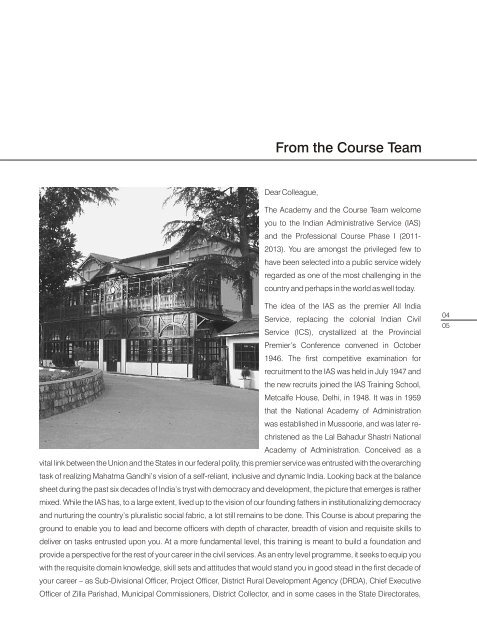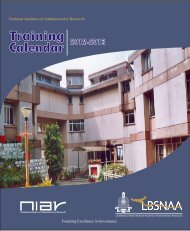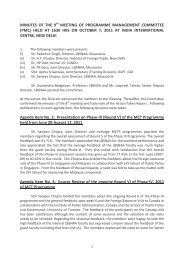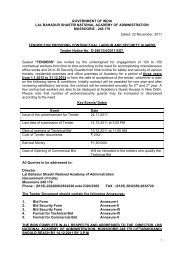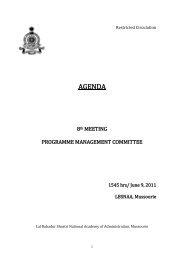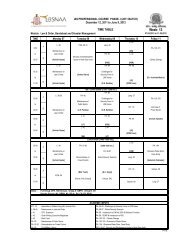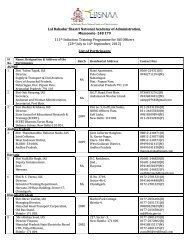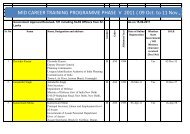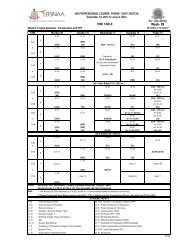You also want an ePaper? Increase the reach of your titles
YUMPU automatically turns print PDFs into web optimized ePapers that Google loves.
From the <strong>Course</strong> <strong>Team</strong><br />
Dear Colleague,<br />
The Academy and the <strong>Course</strong> <strong>Team</strong> welcome<br />
you to the Indian Administrative Service (IAS)<br />
and the Professional <strong>Course</strong> Phase I (2011-<br />
2013). You are amongst the privileged few to<br />
have been selected into a public service widely<br />
regarded as one of the most challenging in the<br />
country and perhaps in the world as well today.<br />
The idea of the IAS as the premier All India<br />
Service, replacing the colonial Indian Civil<br />
Service (ICS), crystallized at the Provincial<br />
Premier’s Conference convened in October<br />
1946. The first competitive examination for<br />
recruitment to the IAS was held in July 1947 and<br />
the new recruits joined the IAS Training School,<br />
Metcalfe House, Delhi, in 1948. It was in 1959<br />
that the National Academy of Administration<br />
was established in Mussoorie, and was later re-<br />
christened as the Lal Bahadur Shastri National<br />
Academy of Administration. Conceived as a<br />
vital link between the Union and the States in our federal polity, this premier service was entrusted with the overarching<br />
task of realizing Mahatma Gandhi’s vision of a self-reliant, inclusive and dynamic India. Looking back at the balance<br />
sheet during the past six decades of India’s tryst with democracy and development, the picture that emerges is rather<br />
mixed. While the IAS has, to a large extent, lived up to the vision of our founding fathers in institutionalizing democracy<br />
and nurturing the country’s pluralistic social fabric, a lot still remains to be done. This <strong>Course</strong> is about preparing the<br />
ground to enable you to lead and become officers with depth of character, breadth of vision and requisite skills to<br />
deliver on tasks entrusted upon you. At a more fundamental level, this training is meant to build a foundation and<br />
provide a perspective for the rest of your career in the civil services. As an entry level programme, it seeks to equip you<br />
with the requisite domain knowledge, skill sets and attitudes that would stand you in good stead in the first decade of<br />
your career – as Sub-Divisional Officer, Project Officer, District Rural Development Agency (DRDA), Chief Executive<br />
Officer of Zilla Parishad, Municipal Commissioners, District Collector, and in some cases in the State Directorates,<br />
04<br />
05


